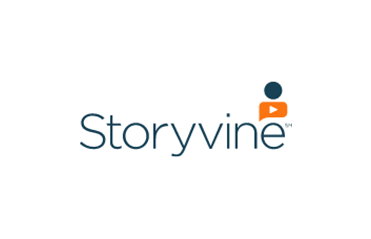For media inquiries and information, please contact Vanessa Senatore.
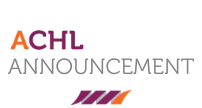
ACHL Receives a 2025 Alliance Industry Summit’s Best in Class Outcomes Award
Access the poster presented at the 2025 AIS meeting in Philadelphia to see how ACHL’s Digital QI, that uses a simple, systematic approach to quality improvement, allowed for easy access and application was leveraged as the framework to offer the process and tools needed to assess asthma control, recognize severe and/or uncontrolled asthma, and provide referrals to a specialist. After 18 months, 260 primary care, emergency medicine, pulmonary, and multi-specialty sites comprised of 1,858 healthcare providers completed the baseline assessment. Baseline levels across eight process-based quality measures ranged from 26 to 44 average points on a 100-point scale. 99 sites developed action plans, and 14 sites completed the reassessment. Amongst these 14 sites, aggregated improvement across domains increased from a mean score of 33.51 to 56.63. All sites reported broad improvement, but full optimization defined by EMR integration remained a barrier within timeframes allotted.

Fall Digital Health Awards 2025
We are thrilled to announce that ACHL won the following awards:
Digital Health Media/Publications: Medical Education
Practical Strategies for Multidisciplinary Recognition and Management of Adverse Events Associated With Bispecific Antibodies for R/R Multiple Myeloma
Web-based Digital Health: Microsite
Conversations Around Brain Health: Reframing Expectations for HCPs, Patients, and Caregivers

Spring Digital Health Awards 2025
We are thrilled to announce that ACHL won the following awards:
Digital Health Media/Publications: Medical Education
Treat or Refer? Improving the Management of Atopic Dermatitis in the Primary Care Setting
Web-based Digital Health: Infographic
Multidisciplinary Team Essentials on CMV Prevention, Surveillance, and Treatment Optimization in the Transplant Setting
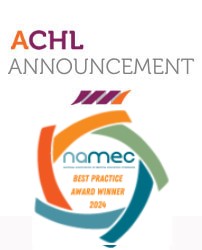
2024 NAMEC Best Practice Awards
ACHL has received two National Association of Medical Education Companies (NAMEC) Best Practice Awards in 2024.
Please join us in congratulating our team on this well-deserved recognition for the following initiatives
NAMEC Best Practice in Enduring Material Educational Design – Heart or Lung Conundrums: Unleash Your Diagnostic Skills
NAMEC Best Practice in Innovative Educational Methods – Establishing Effective Interprofessional Care Pathways for Obstructive Sleep Apnea

ACHL Receives the 2024 Alliance Industry Summit’s Best in Class Outcomes Award
Access the poster presented at the 2024 AIS meeting in Philadelphia to see how ACHL’s “choose your path” digital algorithm, supports learners use of branching logic to assess real-time application of new guidelines and treatment options for advanced melanoma. As LAG-3 inhibitor therapies are introduced into the treatment paradigm for advanced melanoma, adopting a personalized approach to care becomes increasingly more complex. Balancing shared decision-making with patients involves considering the incidence of toxicity, patient performance status, preferences, comorbidities, and various social and environmental factors. Online digital education often lacks practical strategies and guidance to help clinicians translate data and evidence into practice. This digital algorithm addresses that gap by aiding clinicians in making informed treatment decisions in the context of real-world patient complexity.
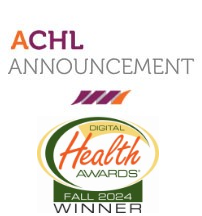
Fall Digital Health Awards 2024
We are excited to share that ACHL’s AdaptED™ platform was a Fall 2024 Digital Health Award winner for an activity developed in collaboration with the Cleveland Clinic Center for Continuing Education titled, "Individualized Strategies for Relapsed/Refractory Multiple Myeloma: Navigating Complexity with BCMA-Targeted and Novel Bispecific Antibodies"
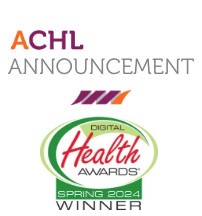
Spring Digital Health Awards 2024
We are thrilled to announce that ACHL won the following awards:
Digital Health Media/Publications: Medical Education
Pathways to Developing Personalized Treatment Regimens for Patients with Advanced Melanoma
Web-based Digital Health: Infographic
Ready, Set, Action: Collaborative Management to Improve Diagnosis of Alzheimer Disease
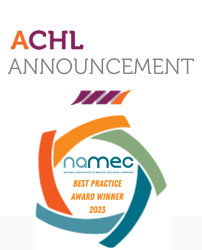
2023 NAMEC Best Practice Awards
ACHL has received three National Association of Medical Education Companies (NAMEC) Best Practice Awards in 2023.
Please join us in congratulating our team on this well-deserved recognition for the following initiatives
NAMEC Best Practice in Learner Outcomes – Practical Solutions to Prevent and Prepare for Severe Hypoglycemia: Expanding the Benefit of Quality Improvement Programs to Diverse Provider Types
NAMEC Best Practice in Enduring Activity Design – Treat or Refer? Improving the Management of Atopic Dermatitis in the Primary Care Setting
NAMEC Best Practice in Advancing Diversity, Equity, and Inclusion in Medical Education – Individualizing Prostate Cancer Treatment: Special Considerations for Gay and Bisexual Men
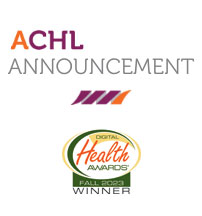
Fall Digital Health Awards (2023)
We are thrilled to announce that ACHL was one of the Fall 2023 Digital Health Awards winners, for its patient education website, LISTEN TO ME: Helping Women Talk to Their Healthcare Provider About Hot Flashes”, www.hotflashhelp.org. Please join us in congratulating our team on this well-deserved recognition.
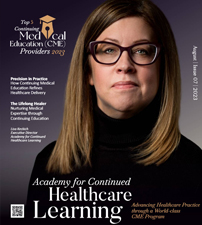
ACHL Receives Recognition as a Top 5 CME Provider
"In our experience, the most successful educational programs create synergies between knowledge acquisition and application to practice, considering the complexity of healthcare delivery and the heterogeneity of professionals who play roles in improving patient care," says Lisa.
Read more
"At every point in time, from conceptualization to evaluation, there is one question we ask ourselves as we develop education—is it meaningful?" explains Lisa. "Our corporate culture promotes an action-oriented perspective to seek solutions to problems, weighing the desired outcomes and implications of our choices with a continual cycle of ideation-action-evidence-refinement. Following the launch of an educational activity, we simultaneously celebrate our accomplishments while assessing opportunities for ongoing refinement and improvement."
Along with this approach, another critical component to developing high-quality education is engaging stakeholders who can partner in full-cycle conceptualization, design and development of responsive education, considerate of nuanced learner audiences and their practice environments. This collaborative model is foundational to ensuring educational relevance and success.
As part of ACHL's ideation exercise, access to stakeholders offers first-hand perspectives on what is and isn't working, whether that is through the lens of how efficiently and effectively healthcare is provided or from the perspective of patients (or their advocates) about the quality of their care. On the implementation side, these partners help the company interpret and navigate the complexity of clinical education without oversimplifying or diluting the educational content. And on the evaluation side, they help define what is meaningful and to whom, guiding the evaluation methodology by which ACHL measures success.
ACHL strives to develop customized instructional designs responsive to the nuanced circumstances underlying identified educational needs, but it also works to create scalable solutions to accommodate different budgets and appeal to different learner types.
The company develops live education at the point of care, adaptive and personalized learning, quality and performance improvement activities, algorithm-driven clinical tools and practice guides, training of trainers programs, educational documentaries, case challenges, "cinemeducation," gaming designs, interactive infographics, patient education programs including whiteboards, live symposia at congresses, and micro CME.
For ACHL's purpose, for those activities intended to improve health outcomes, we often ask learners to develop their own action plans where they self-assess conditions specific to their clinical practice, establish goals and identify changes they can implement to achieve those goals. These goals often range from process level changes such as adding an EMR flag as part of routine practice or hospital level goals such as lowering lengths of stay or reducing the number of readmissions.
Like many CPD providers, ACHL follows Bloom's Taxonomy when considering the different learning domains and their relevance when establishing educational goals. The company leverages different adult learning principles to achieve these goals and engage learners. Often, its educational programs will span multiple domains, seeking to achieve higher cognitive learning as well as effective and behavioral learning outcomes.
“However, if there was one andragogical theory that underpins much of ACHL's educational philosophy and resonates for our vision of what CME/CPD can be, it's the constructivist theory," adds Lisa. "Much of our education is designed with the expectation that learning occurs through experience and reflection and we are here to facilitate an active, optimal process in the context of who they are, where they practice, and who they treat every single day."
Lisa explains further that this especially holds true when developing online education, which creates access to a heterogeneous mix of clinicians, varied by specialty, discipline, experience, practice setting and geography, as well as acumen levels. Despite this diversity, providers often look to measure educational effectiveness considerate of a "typical" learner within the primary target audience. Yet when clinicians outside of this narrow audience participate in an activity, the measures of success aren't optimally aligned to their role in the patient management experience and consequently, their educational results may not fully reflect the impact of the education.
"For these reasons, when we consider different learning domains in our instructional design, we think about these heterogeneous learners and the ways our education can serve them in delivering better healthcare across the compendium of care," she adds.
ACHL uses a variety of methods to measure educational impact through the lens of improved patient health. "And while there are some within the industry who continue to look at how many individuals show up versus whether we realized meaningful performance improvement through our education, there are many of our colleagues who have made tremendous efforts in innovating educational design and effectiveness measurements, and they inspire us every day,"says Lisa.
Admittedly, achieving patient-level outcomes can be challenging outside the clinical practice setting. "For ACHL's purpose, for those activities intended to improve health outcomes, we often ask learners to develop their own action plans where they self-assess conditions specific to their clinical practice, establish goals and identify changes they can implement to achieve those goals. These goals often range from process level changes such as adding an EMR flag as part of routine practice or hospital level goals such as lowering lengths of stay or reducing the number of readmissions," highlights Lisa.
"This approach is rooted in quality improvement practices, and while simple in design, it creates a path by which learners can reflect on what they learned and how they might apply it in the context of their individual practice setting."
The long-existing health disparities in the US have been further elucidated during the pandemic. These disparities occur across many dimensions, including race/ethnicity, socioeconomic status, gender, age, geography, disability status, and sexual orientation. While developing education to increase awareness around disparities is an important first step, it is essential to challenge the CME industry to reach out to their communities, establish collaborations with diverse stakeholders, and conceptualize new educational frameworks that systematically improve care and achieve meaningful and measurable results.
ACHL is immensely proud to be a driving force in working with individual and organizational partners to develop education, navigating the complex behavioral, sociocultural, systemic and policy domains fueling disparities in care, and offering paths for both incremental and sustained change.
In the last two years, ACHL has won two awards that best illustrate its market position. The first was the 2021 Alliance Industry Summit's (AIS) Best in Class Outcomes Award for a dermatology-focused program using ACHL's adaptive learning platform.
The second award was the 2022 ACEHP Innovative Format Award for ACHL's Pathfinder framework, a translational practice design that simultaneously addressed deficiencies in disease knowledge, suboptimal treatment selection, inconsistent guideline adherence and inadequate shared decision-making (performing precision medicine) in patients with ovarian cancer.
While there are some within our industry who continue to look at how many individuals show up versus whether we realized meaningful performance improvement through our education, there are many of our colleagues who have made tremendous efforts in innovating educational design and effectiveness measurements, and they inspire us every day.
Managing complex patients in real-world practice requires evolved problem-solving and analytical skills not easily honed through the one-size-fits-all approach that pervades most IME. Technological advances in and outside of education have created a growing demand and expectation for flexible learning pathways that can accommodate diverse learning needs and paces while also being scalable and engaging.
Learners are tired of wasting time on education that covers material they already know. Rather, they want to find the education they need easily, delivered the way they want, in their limited time. Yet, while the aim of creating a learning environment in which educational content is provided based on the need of the unique learner seems simple in theory, it is immensely complex in its execution.
ACHL has strived to create solutions employing big data, machine learning and artificial intelligence (AI) to optimize learning experiences in a safe, efficient and continual environment, and this activity was successful in reaching and engaging diverse learners while achieving higher-level outcomes.
"At ACHL, we believe education that creates a practical context of clinical data and/or guidelines not only creates relevance but facilitates application," concludes Lisa.

ACHL Receives the 2023 Alliance Industry Summit's Best in Class Outcomes Award
Access the poster presented at the 2023 AIS meeting in Philadelphia to see how ACHL’s uniquely designed Digital QI platform provided a simple, systematic approach for quality improvement to support clinicians and their ability to help patients prevent, recognize, and manage hypoglycemic events. Through an initiative, Practical Solutions to Prevent and Prepare for Severe Hypoglycemia, a digital QI “toolbox” was developed and packaged to synergistically offer both educational and practical guidance, with easy, step-by-step directions on how to run the QI program locally in a cost effective and high impact way. In addition to a targeted recruitment campaign through professional society channels, two practice settings (a primary care practice and a pharmacy practicing in an ambulatory care) were directly recruited and managed by ACHL and Purdue University to ensure a minimum participating population in the QI program.

UChicago Center for CME and ACHL Training of Trainers Program on State-of-the-Art Obesity Management in the Primary Care Setting
ACHL, in collaboration with UChicago Center for CME and expert physicians in weight management, launched a training and education initiative to deepen the understanding of obesity as a chronic, relapsing disease that requires patient-focused discussion, long-term management, and continual follow-up to aid patients on their health care journey. This hub provides everything you need whether you’re a practitioner looking to train as an educator, looking to access personalized CME, or a hospital/clinic looking to support your educational programming. Access the Obesity Care Hub.

AGA and ACHL Training of Trainers Program on Short-Bowel Syndrome (SBS)
ACHL, in collaboration with the American Gastroenterological Association (AGA) Institute, launched a first-of-its-kind training and education initiative to close the gap in multidisciplinary management of SBS through faculty development and peer-to-peer learning. Whether you are a clinician looking to become and AGA-recognized expert in the field, a clinic/hospital seeking one of our experts to present locally to your team, or an individual seeking CME, this robust program has something to offer you. Access the AGA Hub.

ACHL launched its Digital QI Platform
ACHL launched its first Digital QI in partnership with Purdue University and supported by an educational grant from Lilly. The Digital QI uses a simple, systematic approach for quality improvement, for application at any practice setting. Effective and as easy as 1-2-3, providing frameworks and tools to improve patients’ experiences and outcomes.

Responsum Health Launches Innovative Menopause Platform to Inform and Empower Patients
New app, developed in partnership with leading medical education provider, supported by an independent educational grant from Astellas.
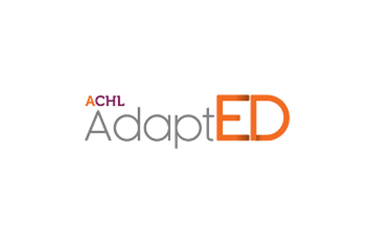
ACHL Receives the 2021 Alliance Industry Summit’s Best in Class Outcomes Award.
Watch our colleague, Amanda Kaczerski, present on ACHL’s uniquely designed adaptive learning program, ACHL AdaptEd™, its impact, and how related educational outcomes create a more meaningful narrative on educational impact for the leaners, providers, and commercial supporters.
Amanda Kaczerski, VP of Educational Strategy and Development, showcases the power and potential of adaptive learning.
Learn more about the ACHL AdaptEd platform.


